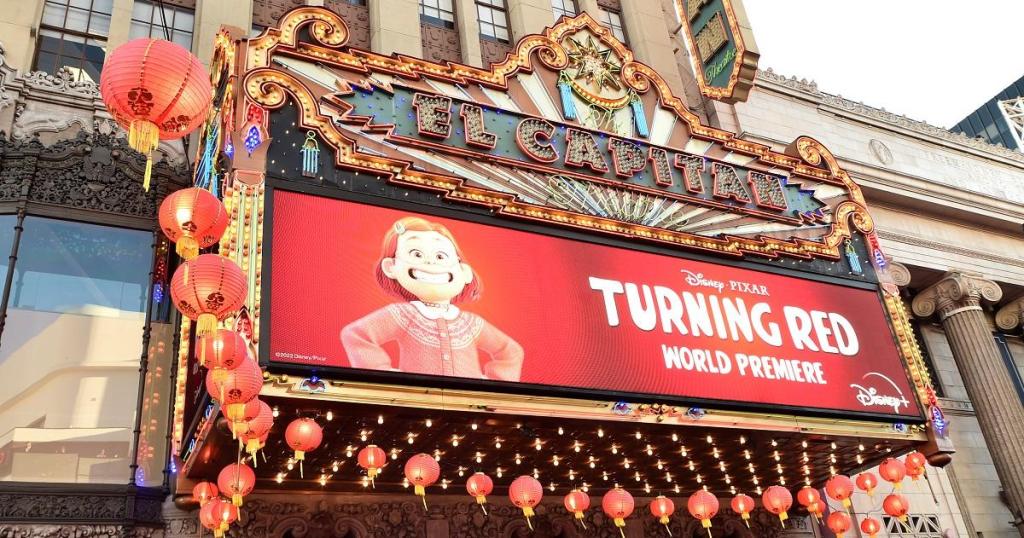The latest Disney Pixar film Turning Red dropped on Disney+ this weekend, and the responses have already been controversial. The new movie centers around a Chinese-Canadian protagonist and deals with her culture, community and experience. Some have complained about this subject, and others say that their criticisms lack nuance and perspective.
Turning Red stars Rosalie Chiang as Mei Lee, a 13-year-old Chinese-Canadian girl who has a mystical quirk that causes her to turn into a giant red panda in times of stress. Throughout the movie, she explores this odd coming-of-age phenomenon and goes through a range of emotional responses to it, as well as the fact that her peers don’t seem to go through anything comparable. Many of the early reviews – or even viral tweets – about the movie questioned whether this subject was relatable. Of course, this question has not been posed about predominantly white media in the same way, leading to a recursive criticism-of-criticism loop.
Videos by PopCulture.com
According to a report by NPR, one review of the movie on CinemaBlend has already been taken down in the midst of outcry on social media. The outlet’s managing director, Sean O’Connell, wrote: “By rooting Turning Red very specifically in the Asian community of Toronto, the film legitimately feels like it was made for Domee Shi’s friends and immediate family members. Which is fine – but also, a tad limiting in its scope.”
O’Connell has since apologized for this and other commentaries about the movie, but similar responses have been circulating online. They have stirred up a conversation about the monumental task of convincing white audiences to view non-white media with an open mind. Here’s a look at how that conversation is going.
Universal
Fans of the movie pointed out the many aspects of its story that are universally relatable. They argued that failing to see the universality of these tropes is a symptom of white-washed media diets and poor education.
Expanding Talent Pool
Some pointed to Turning Red and other recent diverse movies as a sign of the talent pool in Hollywood expanding. They felt that it was good to explore the timeless themes of Pixar movies through different lenses to find new aspects of them.
Statistics
Some also pointed out that, statistically speaking, Asian culture is relatable to more people than white culture is on a personal level.
Relatability
Some users made a joke out of the idea that Turning Red was difficult to relate to in comparison to other Pixar movies. They wondered how a critic could feel like they had more in common with the fish in Finding Nemo or the robots in Wall-E than with a human family from Toronto.
Other Themes
Fans pointed out other thematic differences in Turning Red that you might have missed if you were too focused on the racial distinctions in it.
Menstruation
One of the things people applauded this movie for the most was its casual but earnest depiction of menstruation, without any shame or punchlines attached. In hindsight, many women wished they had seen this kind of representation when they were Mei’s age.
Quality
At the end of the day, some felt that the conversation about race and relatability that this movie stirred up boiled down to a question of quality. They argued that Turning Red was a high-quality film while O’Connell’s review was a low-quality article. Other factors were just ancillary.





